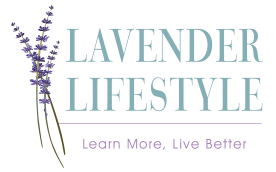
A successful morning routine is beneficial for your overall health and quality of life. During these hours, you get ahead of the world, take steps to fulfill your dreams, and achieve the daily goals that no one can take away from you. Improvement is readily available every morning to every single one of us when we dedicate ourselves to reaching for it.
There are fewer temptations and distractions first thing in the morning. You are more likely to have a stronger sense of willpower, focus, disciple, energy, clarity, and persistence to streamline your plans and actions. Ask yourself: What should I do after waking up? Answering this question is crucial if you want to get the most out of your morning routine.
In this article I discuss my most important recommendations for a morning routine that will set you up for the day ahead as well as help you to develop habits to support longevity and your overall best health outcome! These are my morning routine secrets from a health coach and I welcome you to feel free to follow these explicitly unique tips or tailor them based on your needs. Read on!
Keep It Simple
People’s most significant problem is scheduling too much when creating their morning routines. You may have heard or read somewhere that successful people meditate, journal, exercise, create lists, and set daily goals before 6:00 AM. This regimented list puts too much pressure on a person’s mind. Therefore, keeping your morning routine simple is important.
Remember, your morning routine shouldn’t be 3-5 hours long for most people. This isn’t sustainable and having too many chores lined up every morning will lead people to quit their morning routine before it ever becomes a routine. Do not resolve to cram in a dozen activities before breakfast. However, you need to consider a few things and also be mindful of things that you should stop doing at the start of each day.
People with successful, long term morning routines tend to keep them minimalistic and straightforward. This means your routine should consist of small action cues that help you prepare for the rest of the day that will help you to achieve your daily productivity and health goals.
Begin Planning the Night Before
Most people wait until the morning to plan their day. Avoid this mistake to streamline your planning process. We recommend planning your next day the night before. Spend a few minutes planning or preparing your next day before going to bed. For example, write down your work-related thoughts on paper to reduce stress, clear your mind for relaxation, and organize your emotions. Make sure your daily plan aligns with your health goals and program. A plan will keep you on track and increase your likelihood of continued success.
A to-do list is another vital thing to consider before going to bed. Write down the top 3-5 tasks you want to accomplish tomorrow. That way, you can get started the following day with a clear plan in place. Outline your actions by writing downs the steps and prioritizing the most important ones. This will help you sleep better and wake up early. Once you have a plan, you can go to bed knowing that you are prepared, focused, and committed, allowing your mind to rest easy and get a full night’s sleep.
Wake Up Early
Sleep inertia, the slow-moving interval between sleep-induced brain fog and full awake, can last two to four hours, according to studies. Getting up early allows your body to naturally reach peak wakefulness.
It may seem difficult at first if you haven’t always been an early riser, but once it becomes a habit, you’ll likely notice a significant change in your energy levels and mental clarity in the morning.
Research also shows that women are far less likely to develop mental health conditions like depression, anxiety, and other mood disorders if they get up early than if they sleep in. I know that I’m much more likely to get frustrated, annoyed, or even downright upset when I’m exhausted.
Waking up early is an excellent way to start your day optimistically. Early risers had fewer negative thoughts than individuals who stayed up late and slept even later, according to research. Do find yourself letting your mind race with unpleasant, anxiety-inducing thoughts when you can’t sleep at night? While it may seem impossible to simply wish away unpleasant thoughts or prevent insomnia, it is worthwhile to work to establish beneficial habits.
Restorative sleep has such a positive impact on our physical health. Even if you are a night owl, we suggest adjusting your circadian rhythm to optimize your sleep cycle and become an early riser. Set realistic goals for yourself. It’s best to take things slowly at first. Start by setting the alarm for 6:45 a.m. if you’re used to waking up at 7 a.m. You can increase the time by 15 minutes if your body has accustomed to the adjustment. Going slowly will help your body adjust to the change. You won’t detest the thought of waking up 15 minutes earlier than normal, and you won’t feel sleep-deprived if you do it.
Prepare Your Mind, Body, and Spirit
Get ready to dominate your daily tasks once you wake up. Prepare your mind, body, and spirit for the work that is ahead of you. Implementing a solid routine requires cleansing, centering, and kickstarting. So, what does this mean?
Cleansing means refereeing your body to rest yourself physically. For example, you can drink a glass of water or take essential nutrients/supplements. Centering means doing something helpful that rejuvenates your body and reset your brain.
The best way is to meditate, do yoga, or spend some time with your furry friend. Kick-starting is about priming yourself for the To-Dos or goals for the day, such as listening to a motivating speech, soothing music, doing a gratitude exercise, or journaling.
When you combine these three things in your routine, it will take you less than 30-40 minutes to connect your mind, body, and spirit. That way, you are ready to move forward into your day, think clearly, stay calm, and overcome challenges.
Prioritization is Key
Prioritization is one of the essential principles that lead to success. Prioritizing your tasks within a given time frame helps you focus on spending time productively early in your day on meeting your goals.
You don’t have to fill every second in order to get more done. Creating a hierarchy of importance for your daily list of tasks will results in higher productivity and less stress as you get the most pressing things done first – something you may not have been able to do otherwise.
This effort of prioritizing your tasks will counter act the inclination to procrastinate and avoid doing the complicated or hard work on essential tasks. Procrastination is a habit most likely to prevent you from achieving your goals.
So, instead of focusing on the task’s difficulty, remind yourself of why you want to do it and how it aligns with your life. That way, you can prioritize your most important task and make efforts to achieve it. Remember, the number one priority will become a pleasure when you know why you are doing it.
Reward Yourself
Rewarding yourself allows your brain to elicit positive feelings and emotions. It lets you realize that your morning efforts bring about positive results. When you reward yourself continuously your brain will create a new neural network and link pleasure to achieve a goal.
Reward yourself when you have the first victory of the day. For example, you can have breakfast, take your dog for a walk, meditate, participate in a yoga session/class, read a book, or set a short timer and browse your social media accounts (make sure this activity is quick and enjoyable). Do something that you don’t usually do to make yourself feel special about your achievement. Rewarding yourself helps you continue the practice and stay on track.
Put Your Best Food Forward When You Start Each Day
Having a good morning routine allows you to set the tone for the day. It enables you to control your schedule instead of a schedule controlling you. A positive morning routine helps you develop better habits and improves your day-to-day productivity. You just need to tap the potential of this good habit, which leads to many advantages in both your personal and professional life.
When you start each day fresh, you can focus better by realizing what is ahead of you, what to prioritize, and how to manage your time and increase your productivity. All this translates to happiness, calmness, tranquility, peace of mind, and improved quality of life.
